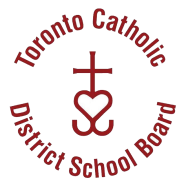
Deaf and Hard of Hearing
Itinerant Service
The Deaf and Hard of Hearing (DHH) withdrawal support program is for students with a bilateral hearing loss that results in substantial difficulty with communication, language development (English and/or sign), and access to the curriculum.
The goal is to help students achieve academic success through the provision of individualized education programming including appropriate accommodations, modifications (if necessary) to the Ministry curriculum, and alternative curriculum, as outlined in their Individual Educational Plan.
Service Overview
The students require a quiet environment to learn alternative curricula. Instruction is delivered by a Specialist Teacher of the Deaf.
The frequency of support ranges from 1x to 4x per week, based on individual student need.
If additional support is required, the student may be considered for an Intensive Support Program for DHH students.
Instructional Components of Programming
Instructional components of programming might include: Ontario curriculum and alternative curriculum to address specific needs such as hearing loss management and technology, speech, language, auditory skills, and self-advocacy as well as other areas that are developmentally appropriate, such as American Sign Language, social skills, and parental support.
In conjunction with the Audiologist, the DHH teachers monitor equipment use and functionality (e.g., Hearing Aids, Cochlear Implants, FM System/Remote Microphone Hearing Assistance Technology) within the learning environment.
If there are additional academic needs (identified or otherwise) that are not due to the hearing loss (e.g., for mild bilateral impairments), the Special Education Teacher at the school may provide resource support for the academic needs.
Collaboration between the DHH, Regular Class, and Special Education Teachers is imperative.
Service Placement
Placement is determined by the Identification, Placement and Review Committee (IPRC), with consideration given to the following factors:
Professional assessment
An audiological assessment indicating a permanent bilateral hearing loss within the mild to profound range.
Psychological assessment (when deemed appropriate).
A speech and language assessment (when deemed appropriate).
Classroom documentation
Collaboration with school personnel, agencies, classroom teacher, families and student.
DHH assessment
Academic and functional assessment at the student’s school. Students who are Deaf and Hard of Hearing may demonstrate needs in language and speech development and in gaining auditory access to the curriculum.
